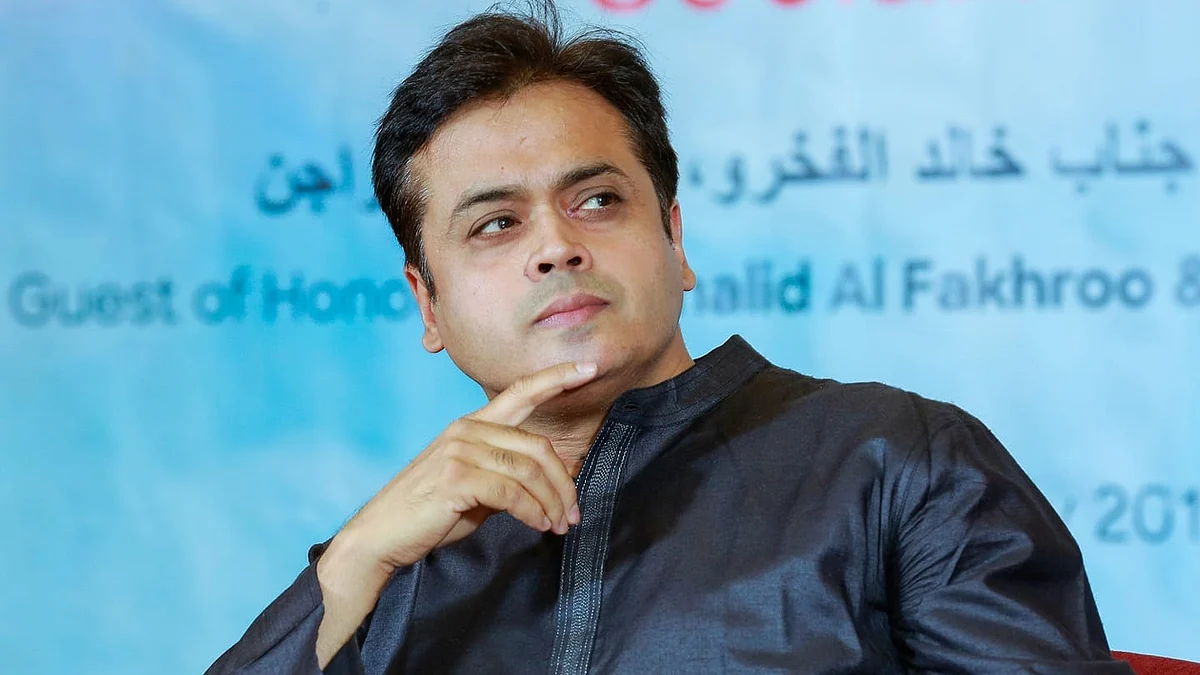Guj. court summons Abhisar Sharma, Raju Parulekar for 'defaming' Adani
Content in question includes references to land grabs, scams and undue benefits allegedly granted to Adani through political connections

A court in Gandhinagar has issued notices to journalists Abhisar Sharma and Raju Parulekar, directing both to appear in person on 20 September in connection with criminal defamation complaints filed by the Adani Group.
The conglomerate has accused the two of spreading false and defamatory content, allegedly aimed at damaging its corporate reputation.
The case has drawn sharp attention not only for the high-profile nature of the complainant but also because it invokes sections of the new BNS (Bharatiya Nyaya Sanhita), 2023.
Sharma, a former high-profile mainstream media anchor now known for his independent commentary on YouTube, has rejected the allegations outright. Speaking to media outlets shortly after the complaint was filed, Sharma called the case an 'intimidation tactic' and said his video was based on publicly available judicial material, media reports, and statements made by public officials.
“These are completely baseless charges,” he said. “My work is grounded in facts and legitimate questions. If raising those questions is criminal, then we must question the direction in which our democracy is heading.”'
In an earlier but related legal battle, Sharma also faced an FIR by Guwahati Police, accusing him of mocking the Assam and Union governments, promoting enmity between groups, and ridiculing religious sentiments. That FIR invoked other provisions of the BNS, including Section 152 — a controversial new section that critics claim revives the sedition law repealed under the IPC.
Sharma has challenged Section 152 before the Supreme Court, arguing that it infringes upon freedom of expression and is overly vague. The court has granted him interim protection from arrest but has not yet quashed the FIR.
Parulekar, for his part, has not made a detailed public statement yet. However, sources close to the journalist suggest that he, too, intends to contest the complaint and present evidence showing that his posts were within the bounds of public commentary and journalistic inquiry.
Both journalists are reportedly consulting with legal teams and civil liberties organisations ahead of their court appearance.
Also Read: Freedom of press: N. Ram urges legal reforms
According to a statement released by the Adani Group, Sharma and Parulekar made 'baseless and misleading' claims through their respective digital platforms, linking the group to alleged land allotment scams and political favouritism. The release alleges that Sharma uploaded a video on 18 August in which he claimed that thousands of bighas of land in Assam had been allotted to the Adani Group, implying a nexus between the government and the conglomerate.
Parulekar, a blogger and columnist who makes frequent appearances on YouTube podcasts, is accused of posting and sharing similar allegations since January 2025 via his social media handles.
The content in question includes references to land grabs, scams and undue benefits allegedly granted to Adani through political connections.
The complaints, filed before the Court of Judicial Magistrate First Class, Gandhinagar (PS Adalaj), cite sections 356(1), 356(2), and 356(3) of the BNS — provisions that are broadly equivalent to IPC sections 499 (defamation), 500 (punishment for defamation), and 501 (printing or engraving defamatory material).
Evidence submitted includes the full transcript of Sharma’s YouTube video, Parulekar’s tweets and retweets, and court documents from a Gauhati High Court case referenced in the claims.
Adani has stressed that the high court order dated 12 August — used by the journalists as the basis of their claims — makes no mention of the company. The firm also clarified that Mahabal Cement Pvt Ltd, the entity involved in the high court case, has “no connection with Adani in any manner”.
If admitted, the cases could proceed to trial. If found guilty, the accused could face up to two years of imprisonment, fines, or both.
The case has reignited debates about the shrinking space for independent journalism in India. Press freedom watchdogs and legal scholars have raised concerns about the use of criminal defamation and vague provisions of the BNS to target journalists, activists, and dissenters.
“This is not just about two individuals; it's about the increasing normalisation of using courts and criminal law to silence journalists,” said a spokesperson for the Free Speech Collective, a press rights organisation.
Critics argue that the replacement of the IPC with the BNS, while intended to modernise the legal code, has introduced newer provisions that may be just as prone to misuse. Section 152 of the BNS, for instance, criminalises “endangering sovereignty, unity and integrity of India,” and has already been invoked in multiple FIRs across the country — often against journalists and political critics.
Even as the legal proceedings unfold, the broader implications for digital journalism and online expression remain a central concern. With both Sharma and Parulekar operating outside traditional media structures, the case is also being seen as a test of how much protection independent digital content creators can expect under India’s legal framework.
The next hearing is scheduled for 20 September, when both Sharma and Parulekar have been directed to appear before the judicial magistrate. It remains to be seen whether the court will admit the complaints and proceed to trial.
With inputs from PTI
Follow us on: Facebook, Twitter, Google News, Instagram
Join our official telegram channel (@nationalherald) and stay updated with the latest headlines
